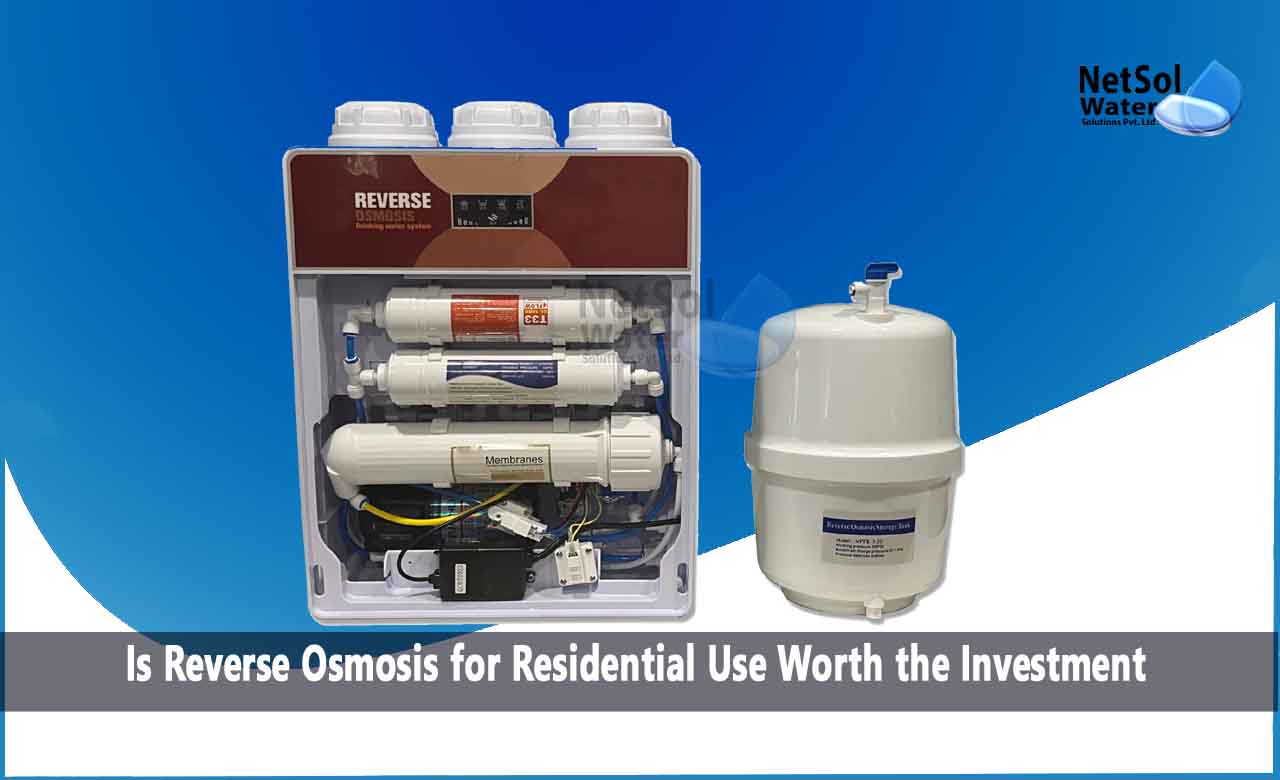Is Reverse Osmosis for Residential Use Worth the Investment?
In today's world, the quality of our drinking water is a growing concern for many homeowners. As a result, residential reverse osmosis (RO) systems have gained popularity as an effective solution for purifying tap water. However, before investing in such a system, it is important to carefully consider its benefits, costs, and overall value. In this blog, we will explore whether residential reverse osmosis is worth the investment by examining its advantages, evaluating the associated costs, and providing insights to help homeowners make an informed decision.
Advantages of Residential Reverse Osmosis:
· Exceptional Water Quality: Reverse osmosis systems are renowned for their ability to remove a wide range of impurities from water, including contaminants like bacteria, viruses, chlorine, pesticides, heavy metals, and dissolved solids. The result is water of exceptional quality, providing peace of mind to homeowners about the safety and purity of their drinking water.
· Improved Taste and Odor: One of the common benefits of reverse osmosis is the elimination of unpleasant tastes and odors caused by chemicals or organic matter. By removing impurities, RO systems can significantly enhance the overall taste and odor of tap water, making it more enjoyable for drinking and cooking purposes.
· Convenience and Accessibility: Having an RO system at home offers the convenience of instant access to purified water. With a dedicated faucet or an under-sink system, homeowners can enjoy clean drinking water directly from the tap, eliminating the need for bottled water and ensuring a continuous supply of high-quality water.
· Potential Health Benefits: By removing contaminants, reverse osmosis helps safeguard against potential health risks associated with consuming impure water. This is particularly important for households with vulnerable individuals, such as young children, pregnant women, or individuals with compromised immune systems.
Evaluating the Costs:
When considering the investment in a residential reverse osmosis system, it is crucial to evaluate the associated costs:
· Initial Investment: RO systems typically require an upfront investment that includes the cost of the system, installation, and any necessary plumbing modifications. While this initial expense may seem significant, it is important to consider the long-term benefits and potential cost savings.
· Operating Costs: Reverse osmosis systems require periodic maintenance, including filter replacements and membrane cleaning. Homeowners should factor in the costs associated with routine maintenance and consider the frequency of filter changes and other upkeep requirements. However, these costs are generally reasonable and offset by the long-term savings on bottled water purchases.
· Water Consumption and Savings: The value of an RO system is directly related to water consumption. If your household consumes a significant amount of drinking water or uses it for cooking purposes, the investment in reverse osmosis becomes more worthwhile. It allows you to enjoy purified water without the recurring costs of purchasing bottled water, potentially leading to long-term savings.
· Long-Term Durability and Value: The lifespan and durability of the RO system should be taken into account. Higher-quality systems are likely to last longer and offer better value over time. Consider the warranty offered by the manufacturer and the reputation of the system to ensure a worthwhile investment.
Making an Informed Decision:
To determine if residential reverse osmosis is worth the investment, homeowners should consider their specific needs and circumstances. It is advisable to test the quality of your tap water and assess the presence of contaminants. If your water source has significant impurities or taste/odor issues, an RO system can provide a significant improvement in water quality.
Additionally, homeowners should evaluate their water consumption patterns, potential health benefits, and the long-term cost savings associated with an RO system. Calculate the cost per gallon of purified water over the system's lifespan to determine its overall value.
Consulting with water treatment professionals can provide valuable insights into the most suitable system for your home and budget. They can assess your water quality, recommend appropriate filtration levels, and guide you in selecting the right system to meet your needs.
Conclusion:
Residential reverse osmosis systems offer numerous advantages, including exceptional water quality, improved taste, convenience, and potential cost savings. While the upfront investment and ongoing maintenance costs should be considered, the long-term benefits and peace of mind that come with a reliable source of clean drinking water make reverse osmosis a worthwhile investment for many homeowners. By evaluating factors such as water quality, consumption patterns, operating costs, and long-term durability, homeowners can make an informed decision regarding the value of integrating a residential reverse osmosis system into their homes.



